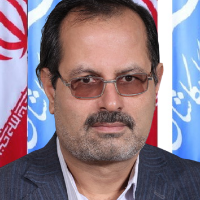Social profile of Iranian Jews in Safavid era
Article Type:
Research/Original Article (ترویجی)
Abstract:
Persians and Jews found each other on the route of Chaldea and Assyria and gradually started one of the longest human coexistences in Iran. From Islam's arrival in Iran until Safavid era, there is no information available on Iranian Jews. However, at early Safavid era, the cultural, social, and economic development and dynamism of this society is realized thanks to two domestic chronicles and the western traveler's narrations. This essay will report and analyze the social and cultural life of the Jews in one of the main Shia centers of Iran during Safavid era. Since, in this survey, Safavid era is assessed from the viewpoint of scarce Jewish resources and their comments, it is important in study of social history of Iran. This paper reports and analyzes the status of Iranian Jews and their interaction with scholars especially Mulla Mohsen Fayz and the Shia governments. Moreover, the population of the Iranian Jewish community, their neighborhood structure, the growth of Judeo-Persian literature in Iran, and religious and literary figures of Jews of Kashan, including Mullah Mosheh Halevi, Rabbi Judah ben Elazar, Saida Sarmad Kashani, Benjamin ben Michael (Amina), Babayi ben Farhad, and Babayi ben Lotf, are introduced. This report and analysis demonstrates that despite some state harassment, we can consider the Safavid era as the peak of the growth and prosperity of the Jewish community of Kashan in economy, culture, and literature domains so that the title "Little Jerusalem" is attributed to Kashan in this era.
Keywords:
Language:
Persian
Published:
Kashan Shenasi Journal (Studies on Kashan), Volume:10 Issue: 2, 2018
Pages:
104 to 121
https://magiran.com/p1846843
مقالات دیگری از این نویسنده (گان)
-
Historical Changes of Limitations and Causes of Divorce in the Rights of Iranian Armenians
Azra Khatami, Hosein Heydari *
Family Law and Jurisprudence, -
The Scope and basics of humility in the New Testament
Fatemeh hajiakbari *, Hossein Heydari
Ethical Research,



